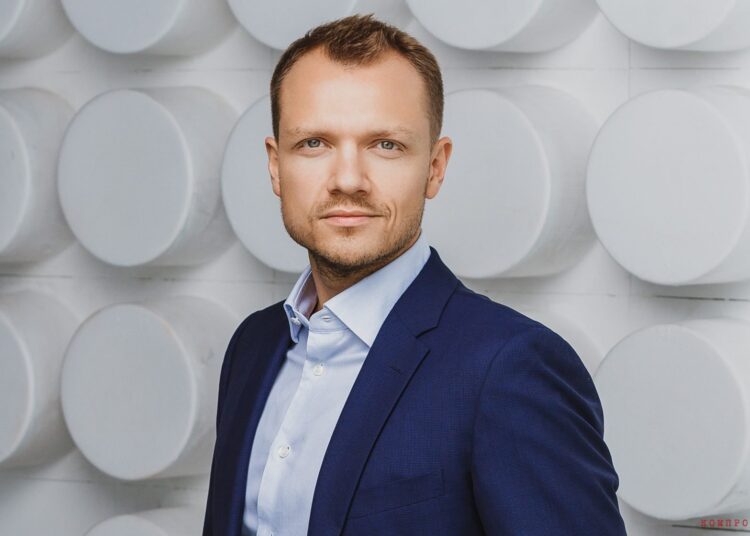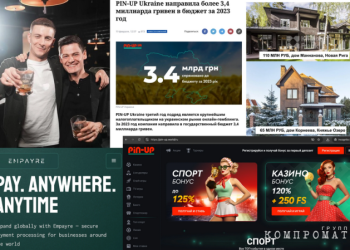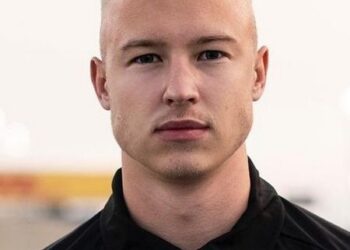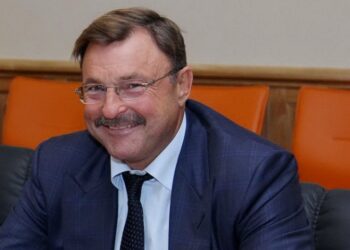Vladimir Khristenko left Nanolek amid criminal cases against ex-partners of Chubais
The pharmaceutical company, which was led by the son of former Deputy Prime Minister Viktor Khristenko, was founded with the participation of Rosnano in 2011 and earned almost 20 billion rubles on government contracts. It is still owned offshore in Cyprus and has previously withdrawn profits there despite tax difficulties. Apparently, now Vladimir Khristenko has decided to go into the shadows, and now the startups he is interested in are unlikely to be in Russia. The time is now, you have to choose: “here” or “there”.
In September, the pharmaceutical market was rumored about a deal between two major players. It was reported that Pharmstandard Viktor Kharitonin allegedly bought out the Nanolek company, which produces vaccines for the national vaccination schedule in the Kirov region. The Nanolek company denied this information. But then a significant change took place in the company’s management structure, which would be difficult to explain otherwise than as a change in the key owner.
Hidden beneficiaries
In December, the post of president of the Nanolek company left Vladimir Khristenko. Son of a former vice-premier Viktor Khristenko has held this position since 2015. Like Kharitonin, he was associated with the figure of Deputy Prime Minister Tatyana Golikovawho married Khristenko Sr. in 2003.
The rise of Pharmstandard (producer of Arbidol) and the emergence of the Nanolek company just happened during the years when Golikova served as Minister of Health. Both companies are major suppliers of medicines to public hospitals and have good financial prospects in the wake of import substitution. Why did Khristenko decide to abandon such a profitable business?
According to Vladimir Khristenko, he is going to “take a breath and come up with something new.” The company is now run entirely by his partner. Mikhail Nekrasov.
In the Russian Unified State Register of Legal Entities, the owner of Nanolek LLC has not changed since the company was founded with the participation of Rosnano in 2011. A drug factory in not the richest Russian region is 100% owned by the Cypriot offshore Nanolek Holding Limited. Who is the ultimate beneficiary of this structure today is not entirely clear. Rosnano has invested about 1.3 billion rubles in it. In 2019, it was reported that Khristenko, Nekrasov and, apparently, other private investors bought out a stake in the state-owned company for 2.35 billion rubles.
These figures, announced in the press, seem to play in favor of the Chubais team. But there are nuances. The deal can hardly be called transparent.
In addition, according to Mikhail Nekrasov, the share of Rosnano was bought out at the expense of borrowed funds. Perhaps these funds were provided by a large state-owned bank (until January 23, 2023, 100% of Nanolek LLC was pledged to Sberbank). Be that as it may, the situation when a Russian state-owned company creates an offshore for relations with Russian investors, as was the case with Nanolek, a priori looks curious.
How successful in general were the investments of Rosnano under the leadership of Anatoly Chubais can be judged by the volumes of criminal cases, as well as a series of bankruptcies of the start-ups associated with it. Take, for example, the Liotech battery plant in Novosibirsk, whose property worth 230 million rubles is planned to be auctioned off literally today, February 27. Another example is the Moscow enterprise Crocus Nanoelectronics. It was supposed to produce memory devices for computers, though not from scratch, but from American components. In 2014, partners from the United States refused to participate in the project due to sanctions, and the equipment of the plant in Russia, in fact, turned into unnecessary trash.
Like Nanolek, Crocus Nanoelectronics was established in 2011. At that time, the investment director of Rosnano was Nail Gubarev, one of the direct subordinates of Anatoly Chubais. In September last year, Gubarev was arrested on suspicion of major fraud. The criminal case is connected with another “daughter” of “Rosnano” – the company JSC “ELVIS-NeoTech”, also established in 2011. It is appropriate to assume that a top manager can tell investigators about other “startups”.
Business on government contracts
Shortly before the departure of Vladimir Khristenko from the Nanolek company, another criminal case was initiated against the former partner of Rosnano. Oleg Dyachenko, who was on the board of directors of the Cypriot fund Nanoenergo Fund Limited, is suspected of embezzling $50 million. In general, the name of the island state pops up in almost every story with the mention of Anatoly Chubais. At the end of January, he and his wife were noticed at Israeli Ben Gurion Airport while waiting for a flight to Cyprus. In this regard, the assumption was born that the former reformer of the Russian energy industry is flying to deal with the affairs of O1 Trust Services Limited, which is controlled by his business partner Boris Mints and provided loans to Chubais for the construction of his giant mansion in Peredelkino.
Why would a drug supplier under government contracts go offshore? In 2019, Mikhail Nekrasov, CEO of Nanolek, explained this with the peculiarities of Russian corporate law.
But the transfer of the head structure of Nanolek to domestic jurisdiction did not happen, even despite the fact that the Republic of Cyprus was included in the list of unfriendly countries last summer. Even earlier, the authorities of the island state began to take away “golden visas” from Russian businessmen who fell under sanctions. And in September 2020, the media reported that the data of a person similar to the son of Viktor Khristenko was found in the list of holders of the so-called investment passport of Cyprus, which is provided in exchange for investments in the local economy in the amount of at least 2 million euros.
Like Nanolek, Crocus Nanoelectronics was established in 2011. At that time, the investment director of Rosnano was Nail Gubarev, one of the direct subordinates of Anatoly Chubais. In September last year, Gubarev was arrested on suspicion of major fraud. The criminal case is connected with another “daughter” of “Rosnano” – the company JSC “ELVIS-NeoTech”, also established in 2011. It is appropriate to assume that a top manager can tell investigators about other “startups”.
Business on government contracts
Shortly before the departure of Vladimir Khristenko from the Nanolek company, another criminal case was initiated against the former partner of Rosnano. Oleg Dyachenko, who was on the board of directors of the Cypriot fund Nanoenergo Fund Limited, is suspected of embezzling $50 million. In general, the name of the island state pops up in almost every story with the mention of Anatoly Chubais. At the end of January, he and his wife were noticed at Israeli Ben Gurion Airport while waiting for a flight to Cyprus. In this regard, the assumption was born that the former reformer of the Russian energy industry is flying to deal with the affairs of O1 Trust Services Limited, which is controlled by his business partner Boris Mints and provided loans to Chubais for the construction of his giant mansion in Peredelkino.
Why would a drug supplier under government contracts go offshore? In 2019, Mikhail Nekrasov, CEO of Nanolek, explained this with the peculiarities of Russian corporate law.
But the transfer of the head structure of Nanolek to domestic jurisdiction did not happen, even despite the fact that the Republic of Cyprus was included in the list of unfriendly countries last summer. Even earlier, the authorities of the island state began to take away “golden visas” from Russian businessmen who fell under sanctions. And in September 2020, the media reported that the data of a person similar to the son of Viktor Khristenko was found in the list of holders of the so-called investment passport of Cyprus, which is provided in exchange for investments in the local economy in the amount of at least 2 million euros.
Last year, Nanolek suffered another setback. During the coronavirus pandemic, the company became a production partner of the FNTs im. Chumakov, who developed the KoviVak vaccine. It was planned that it would produce up to 10 million doses of the vaccine annually. However, after the production of 3 million doses of this drug, it was decided to curtail the work due to lack of demand.
State contracts were, in fact, a key component of the pharmaceutical business of Vladimir Khristenko. In total, Nanolek LLC acted as a supplier under 149 contracts worth almost 20 billion rubles. Since 2014, the company’s revenue has grown steadily, in 2021 it reached 19 billion rubles with a net profit of 2.3 billion rubles (data for 2022 have not yet been published). We do not know the reason why, against the backdrop of such successes, Khristenko’s “drive ended”. But something suggests that the “startups” in which he intends to invest the money earned in Russia may be connected with real estate in Dubai. The time is now – people with several passports have to decide where they plan to live next, and then there is the mess with public procurement and the keen interest of the security forces in the old cases of Rosnano.
At the end of last year, the debts of the state venture company were estimated at 97 billion rubles. In the fall, the government began to discuss its liquidation. There may be more criminal cases related to Chubais’ “nanotechnological” team, and he himself is clearly not going to return to Russia. It’s time for some “start-ups” to disappear from the radar – to wait out the hard times in order to reappear …









